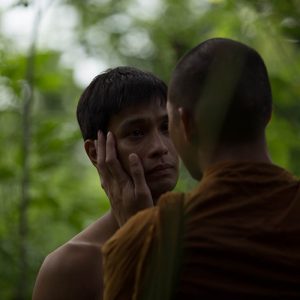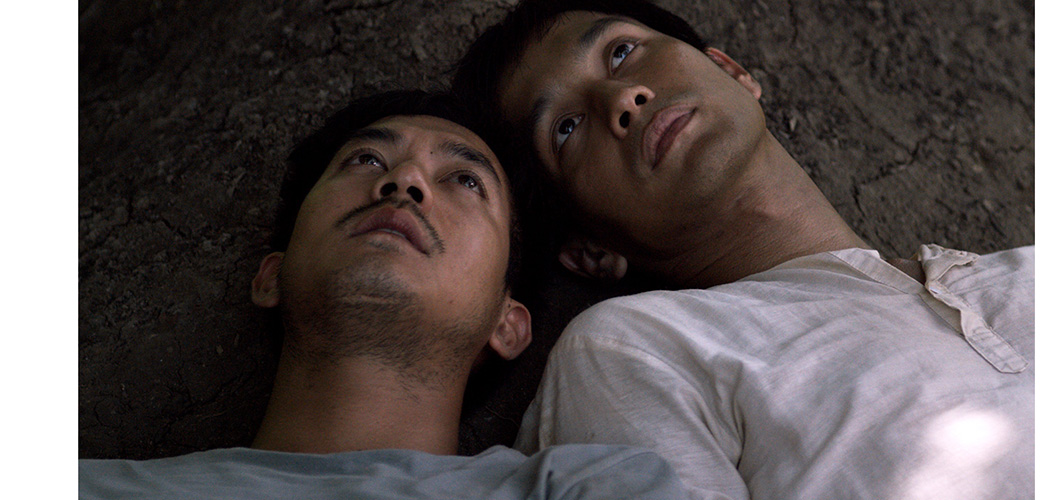
Sexuality, politics and religion intermingle provocatively in this gorgeous drama from Thailand. Award-winning transgender filmmaker Anucha Boonyawatana takes the audience on an artful, involving odyssey of self-discovery that remains refreshingly offbeat and contemplative. There isn’t a traditional sense of a narrative: the film flows over us, speaking to us beneath the surface with a pungent wave of wrenching emotions and confrontational ideas. It may move slowly, but it’s worth settling in to watch it in one go, letting its visual beauty wash over you. This is a strikingly sexy film, and it’s also very moving.
It opens as Pich (Anuchit Sapanpong) returns to his hometown for his mother’s funeral. He had moved to Bangkok to live openly as a gay man, leaving his more timid boyfriend Shane (Sukollawat Kanarot) behind. Their reunion is warm, sweaty and naked as Pich learns that Shane stayed in the countryside to run his family’s jasmine orchard. He also got married and had a child who died very young, after which his wife left him.
Meanwhile, Shane learns that Pich has been enduring aggressive cancer treatment, which hasn’t been successful. So before Pich dies, Shane makes vows he will become a monk for him. Sure enough, Shane heads into the forest with Monk Sanchai (Thai action star Sumret Muengput), facing down his personal demons as he seeks balance. This includes camping in the rain, doing whatever Sanchai tells him to do and looking into a mystery that’s hidden in the undergrowth. This involves confronting a dead body as well as a ghost or two.
Everything about this film is beautiful, starting with the painstaking artistry of elaborate bai-sri floral sculptures, which Pich constructs and floats down a river in memory of his mother.
He explains that they are meant to drift away and die, drawing a line between the living and the dead, allowing the spirit to soar. This idea echoes right through the story to the film’s final shot. It also helps provide some resonance throughout Shane’s journey into the forest, where he encounters reminders of violent events of the past as he is forced to confront his deepest regret.
Filmmaker Boonyawatana used personal experiences – an interest in bai-sri, experiences as a monk in the forest – to keep everything grounded even as it touches on magical realism. It’s gorgeously filmed, with the woods looking like something from a scary but oddly comforting fairy tale. Watching it almost feels like a dream, as scenes flow into each other to depict Shane’s internal journey more than any obvious narrative structure. This means that the fit actors need to be remarkably expressive, especially in their physicality with each other, which is earthy, sensitive and very hot. But the film’s real strength is in its merging of the natural and spiritual sides of these men.
Clearly, this isn’t the kind of movie fans of superhero blockbusters will be looking for. But anyone seeking something fresh and different will enjoy its gentle pacing and deeper meanings. It’s the kind of movie that makes us think about our lives and the mistakes we’ve made. It’s also exploring how the people who have gone before us impact our lives in a variety of ways, whether or not we knew them, which is an especially rich and powerful idea for a gay men to consider. It’s the kind of film that’s rewardingly moving for viewers who allow themselves to take the journey. JC
****
Malila: The Freedom Flower is out now on DVD/VOD.














